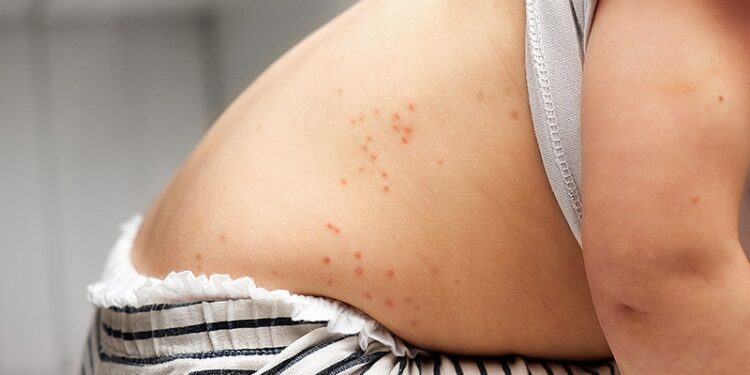Pediatricians should consider treating children with atopic dermatitis (AD) “proactively,” according to a new clinical report from the American Academy of Pediatrics (AAP).
The AAP defines proactive care as an “evidence-based” approach based on “intermittent use of anti-inflammatory agents (eg, topical corticosteroids or tacrolimus twice weekly) on previously affected skin to prevent flares” of AD.
The group also recommends newer agents like the Janus kinase (JAK) inhibitors, which may have fewer side effects than long-term steroid use and are more effective than older drugs.
The report comes as patients experience long waits for referrals to pediatric dermatologists, said Jennifer Schoch, MD, a professor of dermatology at the University of Florida in Gainesville, Florida, who helped write the document.
The recommendations may help primary care clinicians more confidently identify and treat mild to moderate cases of AD, she said.
“Pediatricians play a critical role in initiating topical treatments, educating families, and supporting quality of life,” Schoch said. “With a proactive approach to topical therapies and an understanding that atopic dermatitis is a chronic condition requiring an ongoing management plan, most cases can be effectively handled in primary care.”
JAK inhibitors may be particularly beneficial for treating sensitive areas of the body, supporting patients who have not responded to traditional therapies, and aiding in long-term treatment.
Topical JAK “treatments offer targeted anti-inflammatory effects, which adds to our toolbox, particularly to mitigate concerns about risks of long-term steroid use,” Schoch said.
The AAP also now recommends applying topical corticosteroids or topical calcineurin inhibitors proactively to prevent flares. In recent research, patients who were preventively treated with topical steroids experienced a reduction in disease severity and an improved quality of life. The proactive use of nonsteroid topical agents produced similar results.
Soft Skills to Build
Moisturization and avoidance of triggers like harsh detergents and low humidity continue to be mainstays of maintenance care. Patients should be moisturized using a fragrance-free, thick cream after bathing and handwashing. The AAP advises daily, short baths in lukewarm water and the use of wet wraps and bleach baths.
The report emphasized the psychosocial burden of AD in children. AD is associated with mental health issues like stress, depression, and insomnia in children. The recurring, ongoing nature of the disease can place a heavy emotional and economic burden on the entire family, Schoch said.
“Atopic dermatitis can significantly disrupt sleep due to relentless itching, leading to daytime fatigue, irritability, and behavioral challenges in children,” Schoch said. “The disease may affect school performance, peer relationships, and self-esteem, while caregivers report high levels of stress, anxiety, and even depression.”
The new report recommends cognitive-behavioral therapy for patients with mental health concerns and progressive muscle relaxation, sleep hygiene management, and melatonin to reduce insomnia.
The use of written action plans may help families follow through with treatment strategies and are “excellent tool for primary care providers to help explain to patients the stepwise approach of the disease,” said Daniela Russi, MD, a pediatric dermatologist at Phoenix Children’s in Phoenix, who was not involved with the report. These plans help “pediatricians evaluate all aspects of the treatment…in addition to providing proactive ways to prevent flare-ups.”
“This guideline is helpful in showing pediatricians that they are capable of treating mild to moderate atopic dermatitis patients,” Russi said. “Most of the patients we see in the clinic come without any knowledge of basic skin care, frequency of baths, and use of the correct moisturizers, especially bleach baths and wet wraps.”
Schoch reported financial relationships with Janssen Biotech and Exactech. Russi reported having no disclosures. No external funding for the clinical report was used.
Brittany Vargas is a journalist covering medicine, mental health, and wellness.
Source link : https://www.medscape.com/viewarticle/stop-flare-pediatricians-urged-go-proactive-atopic-2025a1000eo1?src=rss
Author :
Publish date : 2025-05-30 11:22:00
Copyright for syndicated content belongs to the linked Source.














